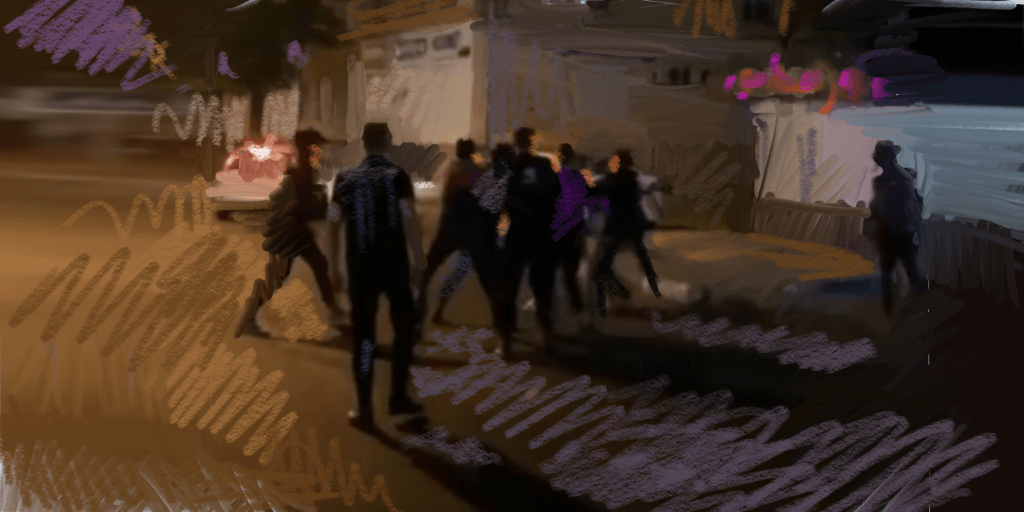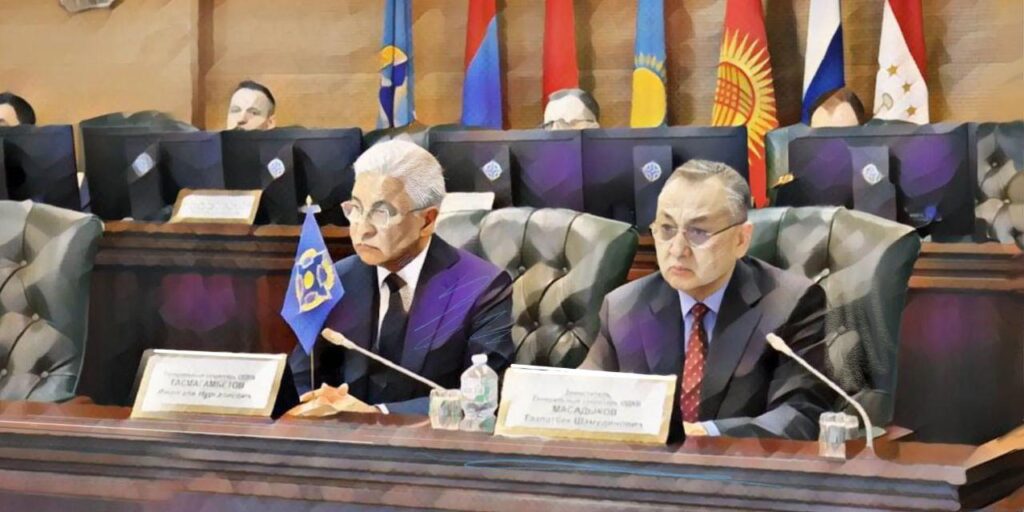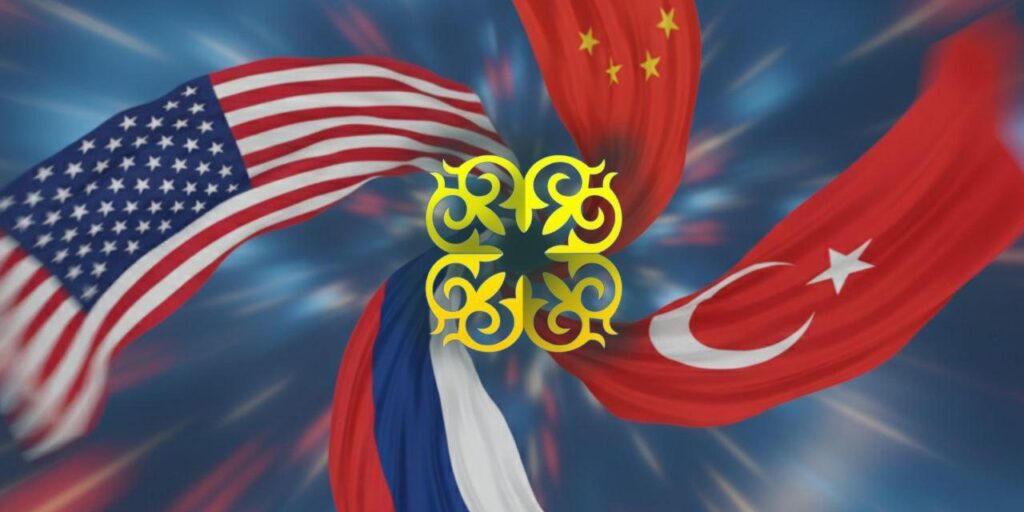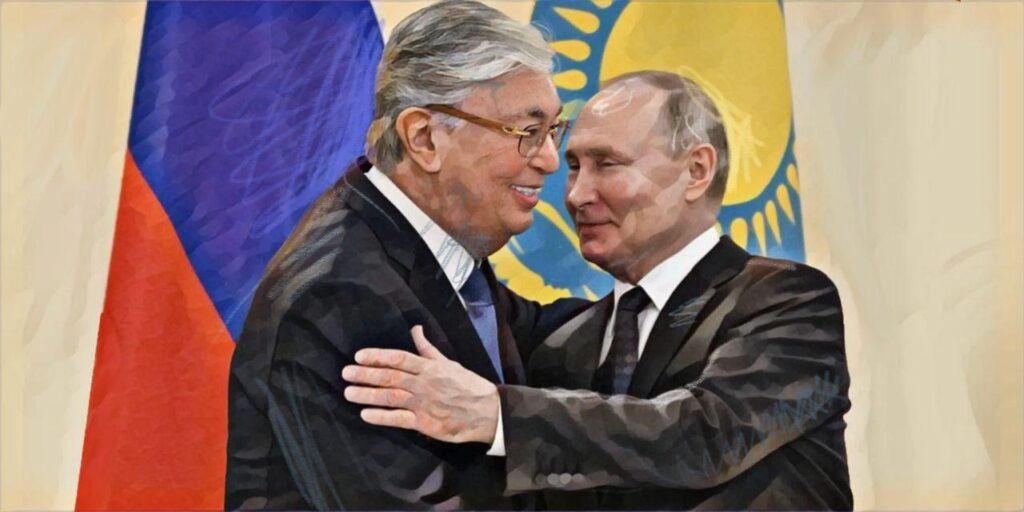The wave of xenophobia targeting Central Asians in Russia that has followed the terrorist March 22 attack on Moscow’s Crocus City Hall presents many problems for Central Asia, including concerns about what sort of friend Russia really is.
As reports of attacks on Central Asians in Russia multiplied in the last days of March, April saw a flurry of meetings of Central Asian leaders.
Kazakh President Kassym-Jomart Tokayev met Uzbekistan President Shavkat Mirziyoyev in Khiva, Uzbekistan on April 4-5. At the same time, the chairman of Turkmenistan’s Halk Maslahaty (People’s Council), former President Gurbanguly Berdymukhammedov was in Tajikistan meeting with Tajik President Emomali Rahmon. Kyrgyz President Sadyr Japarov visited Kazakhstan on April 18-19, meanwhile, the same days that Uzbek President Mirziyoyev was in Tajikistan for talks with his counterpart Rahmon.
Reports of their meetings focused on praising fraternal ties and signing bilateral agreements. There was no mention of any discussions about the rapidly unfolding dilemma with Russia.
The people Russia claims staged the attack that left more than 140 people dead are Tajiks, some of whom acquired Russian citizenship, others who were migrant laborers. There are at least four million migrant laborers from Uzbekistan, Kyrgyzstan, and Tajikistan working in Russia and some estimates put the number at double that figure, or more.
In the wake of the attack, all Central Asians fell under suspicion in Russia. Passengers from Central Asia arriving in Russia were held up at airports for extra document checks, sometimes for more than 24 hours. Russian police raided dormitories and other facilities where Central Asian migrant laborers were known to stay.
The first four Tajik suspects apprehended were shown on Russian television. They had clearly been tortured. An FSB member had cut part of the ear off one of the suspects and fellow FSB troops filmed him forcing the severed piece of ear into the mouth of the suspect.
Russia was a colonizer of Central Asia and the leaders of the five Central Asian countries are well aware of that history. Since the collapse of the Soviet Union in late 1991, whenever Central Asian and Russian officials meet, they speak of historically friendly ties and valued partnerships.
It has often been difficult to make this image credible to Central Asia’s people, particularly after Russia launched its full-scale invasion of Ukraine in late February 2022.
Some Russian nationalists, including politicians, have spoken about reclaiming “historic Russian land,” usually mentioning part or all of Kazakhstan.
Chairman of Russia’s Investigative Committee Aleksandr Bastrykin said in May 2023 that military service in Ukraine should be mandatory for migrant laborers seeking Russian citizenship, and State Duma Deputy Mikhail Matveev backed this call, adding, “Where are our Tajik battalions?“
There are many other such examples since February 2022. Both Russian and Central Asian government officials have downplayed these remarks, saying they are the views of an individual and do not reflect the position of the Russian government.
However, In January 2024, Deputy Speaker of Uzbekistan’s lower house of parliament Alisher Qodirov questioned why, if these were not the Russian government’s views, were such comments allowed to continue.
Qodirov was responding to comments from Russian nationalist politician Zakhar Prilepin, who told a Moscow press conference in December 2023 that Russia should annex Uzbekistan since two million Uzbek citizens were working in Russia; and also to remarks a month later from Russian historian Mikhail Smolin who appeared on Russia’s NTV channel and said Uzbeks (and Kazakhs and Azerbaijanis) did not exist as a people prior to the Bolshevik Revolution.
“It seems,” Qodirov said, “[the Russian authorities] are interested in such rhetoric.”
That was prior to the Crocus City Hall attack, and if it was previously possible to ascribe racist remarks to a select group of Russians, since the attack reports of average Russians attacking Central Asians have become frequent.
One video purportedly shows a Tajik schoolgirl being beaten in a classroom by Russian boys as their teacher looks on and does nothing to stop it.
A Kyrgyz woman named Ayperi Zhumaaly kyzy recounted how in Moscow, a Russian man she did not know kicked her, hit her in the face, and told her, “You’re all terrorists. You should not be in Russia. Get out of here!”
In another video, a group of young Russian males in the Moscow metro scream at a girl from Yakutia, an area of northeastern Siberia that has been part of Russia since the 17th Century, that Russia is for Russians.
Russian officials do not seem interested in calling on the country’s people to stop these attacks, and the Russian police have not been active in apprehending any of the attackers.
People in Central Asia see these social networks posts and likely hear many more such stories from friends and relatives working in Russia.
There is no way to hide what’s happening in Russia from the Central Asian people and no way to attribute such acts to an isolated few people in Russia. That does not mean all, or even most Russians feel or act this way, but the people responsible for these attacks are ordinary Russian citizens and they do not seem to face any repercussions for their actions.
This must have been a topic of private discussions during these meetings of the Central Asian leaders. They have to publicly tell their people Russia is an ally, a partner, and a friend. The big question now is, does anyone, including the Central Asian leaders, still believe this to be true?









